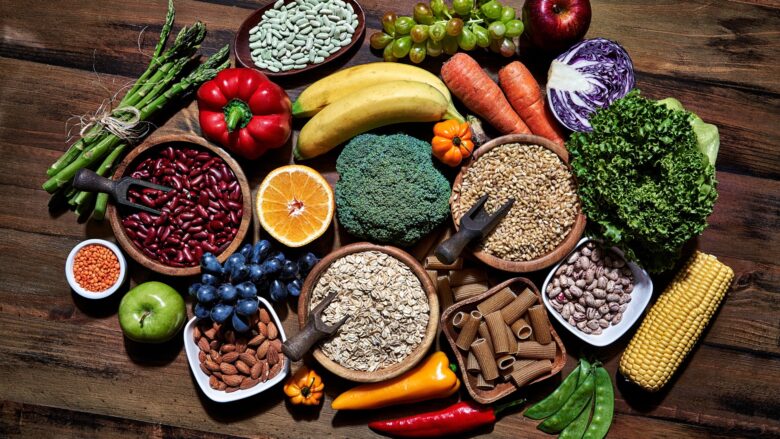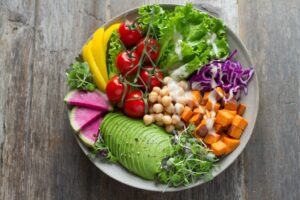Health fanatics and casual eaters alike have been switching to a plant-based diet in droves in recent years. As people become more health-conscious and environmentally conscious, many are discovering a plant-based diet. What does this lifestyle entail? Why does it appeal to so many people?
Switching to a plant-based diet can be daunting, whether you’re doing it for health reasons or just want to eat more vegetables. The site covers everything from the benefits of the diet to advice on how to get started. Let’s take a look at how plants can improve your diet and your health!
The Rise of Plant-Based Diets
Plant-based eating has become a popular trend in recent years, with more and more people realising that our food choices impact our health and the planet. This shift has been fuelled by social media. The colourful treats created by influencers, chefs, and users are even tempting meat lovers. The wide variety of recipes makes it easier to try new flavours and ingredients.
Environmental documentaries have also introduced people to sustainable eating. As climate change becomes a growing concern, more and more people are turning to diets to reduce carbon emissions. Plant-based diets have been linked to weight loss and heart health, supporting this movement. With robust data, these factors have increased the demand for plant-based meals among various demographics.
Health Benefits of a Plant-Based Diet
Plant-based diets have many health benefits. Research shows that they can reduce the risk of heart disease, diabetes, and several cancers. A diet rich in fruits, vegetables, whole grains, and legumes can provide important nutrients. Plant-based fibre promotes digestive health. The fullness and low calorie intake that this high fibre content provides can help maintain a healthy weight.
A plant-based diet can reduce inflammation. Berries, almonds, and leafy greens can reduce inflammation. A plant-based diet can improve mood and mental clarity, as well as physical health. These diets also support gut health through fermented plant probiotics. A wide variety of plant foods fuel your body and provide rich flavours.
What is a plant-based diet?
A plant-based diet emphasises plant foods. Fruits, vegetables, grains, legumes, nuts, and seeds. Every meal starts with these. Fruits come in a variety of colours and flavours and can be purchased fresh or dried. Provide essential vitamins and natural sugars for energy. Vegetables vary in texture and nutritional value. Leafy greens like spinach and kale are rich in iron and calcium.
Quinoa, brown rice, and oats are all high-fibre grains. They provide complex carbohydrates for energy and promote gut health. Protein-rich legumes include beans, lentils, and peas. These versatile ingredients add delicious flavour to any dish. Nuts and seeds can add crunch and healthy fats to meals and snacks. Almonds or chia seeds can make your morning smoothie even more delicious.
Tips for Starting a Plant-Based Diet
Moving to a plant-based diet can be stressful, but small steps can help. Start by eliminating meat from one meal a week. This simple change introduces new flavours and ingredients. Go to the farmers market and buy fresh vegetables. Seasonal produce tastes better and is less expensive. Try quinoa or farro as a base for your meal.
Be brave and try beans. Beans, lentils, and chickpeas provide protein and nutrients. Try a plant-based ethnic cuisine for added flavour. Indian, Mediterranean, and Thai cuisines love vegetables with their bright flavours. Ask for help online or at your local plant community. Sharing cooking experiences can spark inspiration and creativity.
Common Misconceptions About Plant-Based Diets
Many people think that plant-based diets are low in protein. Wrong. Plant-based sources of protein include lentils, quinoa, chickpeas, and tofu. Another misconception is that plant-based diets are expensive. Beans, grains, and seasonal vegetables are available at affordable prices. You can save money by planning your meals around these components.
Some argue that plant-based diets are low in nutrition. By eating mindfully and making a variety of choices, such as almonds for healthy fats and leafy greens for vitamins, most nutritional needs can be met. Some people believe that going vegan means saying goodbye to all your favourite foods for good. Today, there are creative alternatives like cashew cheese and veggie burgers that allow people to try new flavours but still enjoy the ones they already know.
Plant-Based Meal Plans and Recipes
Planning your meals can make the transition to a plant-based diet easier. Choose from exciting recipes. Think colourful salads, filling grain bowls, and hearty stir-fries. Batch cooking has been revolutionised. Cook a batch of quinoa or brown rice. This will save you time and keep you on track throughout the week. Make sure to snack! Keep some hummus and veggie chips on hand for snacking. Fresh fruit can satisfy your sweet tooth without the added sugar.
Explore Indian, Thai, and Mediterranean cuisines with delicious plant-based ingredients. Try herbs and spices to transform simple meals into gourmet dishes. Add a little basil or cumin, and it might just become your favourite! Beans, lentils, nuts, and seeds simplify meal preparation and provide a balanced diet.
Conclusion
A plant-based diet can change your life. It releases a rich variety of flavours, textures, and colours. Every meal is an opportunity to try new ingredients and dishes. Health benefits are many. For many people, changing their diet can improve energy, digestion, and sense of well-being. These changes have been accompanied by an increase in physical activity. In addition, this change promotes sustainability. Choose plant-based over animal-based to help protect the environment.
A plant-based lifestyle is also becoming increasingly popular in society. Dining with like-minded friends can enhance your dining experience and your network. You can start this great path to health with a simple grocery list and changes to your cooking habits. Your taste buds and the world will thank you!
FAQs
1. Plant-based diet?
A plant-based diet emphasises plant-based foods. Fruits, vegetables, whole grains, legumes, nuts and seeds. It may not be vegetarian or vegan, but it does advocate a diet that uses as few animals as possible.
2. Should I stop eating meat?
Not necessarily! Flexitarians limit their meat consumption but do not eliminate it completely. It is crucial that you find a lifestyle that works for you.
3. How can I get enough protein?
Protein-rich plants include beans, lentils, tofu, tempeh, quinoa, nuts and seeds. With a meal plan that focuses on these foods, you can easily meet your protein needs.
4. Vegan Kids: Can They Thrive?
Yes! With proper planning and attention to nutritional needs like vitamin B12, kids can thrive on a balanced, plant-based diet.
5. Will I Miss My Favourite Foods?
It may take a while for your taste buds to adjust, but with creative cooking and flavourful spices or sauces, plant-based versions of these treats can be just as delicious!




